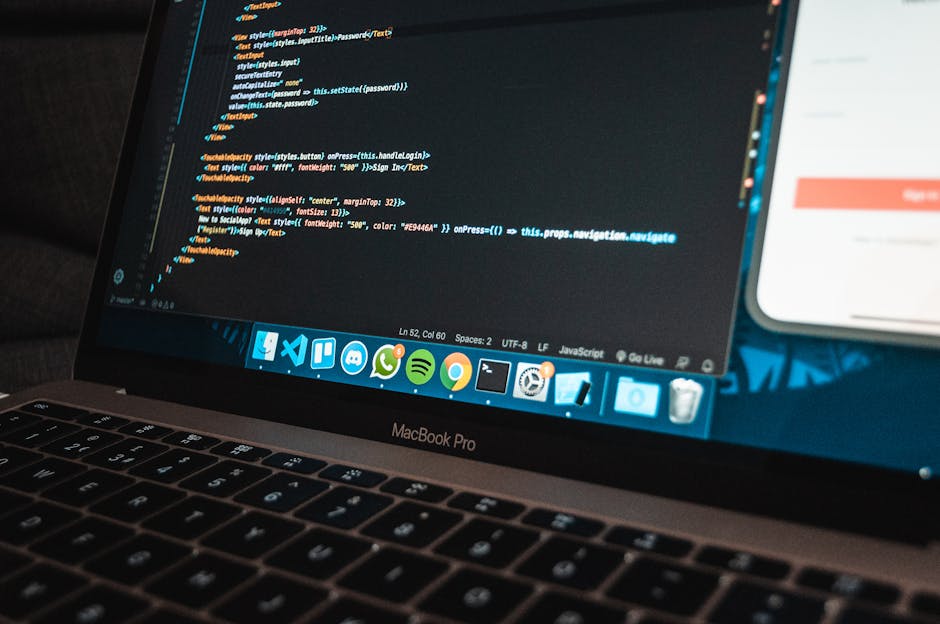Top 10 Strategies for Decentralised App Contract Migration
Decentralised app contract migration is a critical process that requires careful planning and execution to ensure a smooth transition without disrupting the app’s functionality.
As the blockchain ecosystem continues to evolve, it’s essential for developers and project teams to be well-versed in the top strategies for seamless contract migration. These strategies encompass a range of technical considerations, from contract audit and review to gas cost optimisation, each playing a crucial role in the success of the migration process.
By implementing these strategies, developers can mitigate risks and streamline the migration, ultimately contributing to the overall stability and efficiency of decentralised applications.
Key Takeaways
- Conduct comprehensive audits and reviews of smart contracts to identify and rectify security vulnerabilities and optimise code for efficiency and gas cost reduction.
- Thoroughly test smart contracts by isolating them, automating the testing process, conducting integration testing, and simulating real-world conditions to ensure comprehensive coverage and validate resilience.
- Implement version control and tagging practises using Git and branches to track changes, maintain code integrity, and provide references through release notes.
- Plan and execute data migration carefully, ensuring data validation, robust encryption mechanisms, backups, and a data synchronisation strategy to prevent inconsistencies and mitigate the risk of data loss or corruption. Additionally, develop a rollback and revert strategy with thorough testing and validation to restore smart contracts to a previous state in case of issues.
Contract Audit and Review

Upon completion of the development phase, it is imperative to conduct a comprehensive audit and review of the decentralised application’s smart contracts to ensure their security, functionality, and compliance with the intended specifications.
This process involves a meticulous examination of the codebase to identify and rectify any security vulnerabilities that could expose the smart contracts to exploitation. Security vulnerabilities can range from susceptibility to reentrancy attacks, denial-of-service attacks, or unauthorised access to sensitive data.
Additionally, the audit and review phase also presents an opportunity for code optimisation, where the smart contracts can be fine-tuned to enhance efficiency, reduce gas costs, and improve overall performance.
A thorough review of the smart contracts is essential for establishing trust and confidence in the decentralised application, especially in a landscape where security breaches and exploits can have severe consequences.
By addressing security vulnerabilities and optimising the code, the smart contracts can be fortified to withstand potential threats and ensure the integrity of the decentralised application.
This meticulous approach to contract audit and review alines with the principles of transparency and autonomy that underpin decentralised systems, empowering users to engage with the application with a sense of security and freedom.
Testing in Isolation

In the process of decentralised app contract migration, isolating smart contracts for thorough testing is a critical step to identify and rectify any potential issues prior to deployment. Test automation plays a crucial role in this phase, enabling the execution of various test scenarios and ensuring that the smart contracts function as intended.
By automating the testing process, developers can efficiently detect and address any vulnerabilities or inefficiencies in the contract code.
Integration testing is also a key component of testing in isolation. This involves validating the interaction between individual smart contracts and their compatibility within the broader decentralised application ecosystem. By conducting integration tests in a controlled environment, developers can assess the seamless operation of the contracts and identify any conflicts or inconsistencies that may arise when integrated with other components.
Furthermore, the use of specific test data and test environments is essential to simulate real-world conditions and potential edge cases. By leveraging diverse test data sets and creating varied test environments, developers can ensure comprehensive test coverage and validate the resilience and reliability of the smart contracts under different circumstances.
Version Control and Tagging

After thoroughly testing and ensuring the seamless operation of smart contracts, the next critical step in decentralised app contract migration involves implementing version control and tagging mechanisms to effectively manage the codebase and track changes. Version control best practises are essential for maintaining the integrity and stability of the codebase, especially in decentralised app development where multiple contributors may be working on the same code simultaneously. By utilising version control systems such as Git, teams can track changes, collaborate efficiently, and roll back to previous versions if necessary. Additionally, tagging conventions and standards play a crucial role in organising and categorising different versions of the codebase. Consistent and descriptive tagging practises enable developers to identify and reference specific points in the project’s history, aiding in the seamless management of decentralised app contract migration. The table below outlines some recommended version control best practises and tagging conventions for decentralised app contract migration:
| Version Control Best Practises | Tagging Conventions and Standards |
|---|---|
| Use descriptive commit messages | Follow semantic versioning |
| Create branches for new features | Use release tags for stable versions |
| Regularly merge and review code changes | Include release notes in tags |
| Utilise pull requests for code review | Implement a standardised tagging format |
| Automate testing and deployment processes | Ensure consistent tagging across repositories |
Data Migration Planning

The initial phase of data migration planning involves conducting a comprehensive assessment of the existing data infrastructure and identifying the specific datasets to be migrated. This crucial step sets the foundation for a successful data migration process.
In the context of decentralised app contract migration, data migration planning requires careful consideration of various factors such as data validation, encryption, backup, and synchronisation.
-
Data Validation: Ensuring the accuracy and integrity of the data to be migrated is essential to prevent any inconsistencies or errors in the new environment.
-
Data Encryption: Implementing robust encryption mechanisms to secure sensitive data during the migration process and after it has been transferred to the new system.
-
Data Backup: Creating backups of the existing data to mitigate the risk of data loss or corruption during the migration process.
-
Data Synchronisation: Developing a strategy to synchronise data between the old and new systems to maintain consistency and coherence throughout the migration process.
Rollback and Revert Strategy

The successful execution of a decentralised app contract migration plan requires careful consideration of the rollback process and revert implementation.
Understanding the rollback process overview and the intricacies of revert implementation considerations is crucial for minimising disruptions and ensuring the integrity of the decentralised application.
Rollback Process Overview
In the context of decentralised app contract migration, the rollback process overview encompasses the meticulous planning and execution of the rollback and revert strategy to ensure the integrity and security of the decentralised application’s smart contracts.
-
Rollback Contingency: Establishing a well-defined plan for potential rollbacks in case of unforeseen issues during the contract deployment process.
-
Revert Strategy Implementation: Structuring a systematic approach to revert the smart contracts to their previous state in the event of critical failures.
-
Risk Assessment and Mitigation: Conducting a thorough risk assessment to identify potential pitfalls and implementing mitigation measures to minimise the impact of rollbacks.
-
Testing and Validation Protocols: Implementing robust testing and validation protocols to verify the effectiveness of the rollback and revert strategy before actual deployment.
Revert Implementation Considerations
With a focus on ensuring the reliability and security of decentralised application smart contracts, the implementation of revert considerations plays a crucial role in the overall rollback and revert strategy. When handling errors within smart contracts, a well-thought-out revert implementation is essential to maintain the integrity of the blockchain network. Below is a table summarising key considerations for revert implementation and error handling in decentralised app contract migration:
| Consideration | Description | Example |
|---|---|---|
| Error Recovery Mechanism | Methods for recovering from contract errors | Using modifiers to cheque conditions |
| Gas Consumption Optimisation | Minimising gas consumption during reversions | Using view and pure functions |
| Event Logging | Logging events for diagnostic purposes | Emitting events with error information |
| Circuit Breaker Pattern | Implementing circuit breaker for emergency stops | Using a modifier to pause contract operations |
Stakeholder Communication Plan

Through effective stakeholder communication, the decentralised app contract migration process can be streamlined, ensuring clarity and alinement across all involved parties.
-
Regular Updates: Provide frequent updates to stakeholders regarding the progress of the migration process, including any challenges or milestones achieved.
-
Feedback Mechanism: Establish a structured feedback mechanism to gather input from stakeholders, allowing them to express concerns, suggestions, and requirements.
-
Clear Documentation: Develop and maintain comprehensive documentation outlining the migration plan, timelines, and potential impact on stakeholders, ensuring transparency and understanding.
-
Open Channels: Create open channels of communication such as forums, groups, or dedicated communication platforms to encourage active stakeholder engagement and collaboration.
Effective stakeholder engagement and a robust communication strategy are essential for the success of decentralised app contract migration. By keeping stakeholders informed, involved, and empowered, the migration process can proceed smoothly, fostering trust and co-operation amongst all parties involved.
Security Token Handling

When considering security token handling in decentralised app contract migration, it is essential to address token security measures and compliance with regulations.
Security token handling involves implementing robust measures to safeguard the security and integrity of the tokens within the decentralised app ecosystem.
Moreover, ensuring compliance with relevant regulations is paramount to maintain the legitimacy and trustworthiness of the decentralised application.
Token Security Measures
One essential aspect of decentralised app contract migration involves implementing robust security measures for handling tokens, ensuring the integrity and safeguarding of digital assets within the decentralised application. When it comes to token security measures, it’s crucial to prioritise:
-
Token audit: Regularly auditing tokens to identify and address potential vulnerabilities or weaknesses.
-
Protection: Implementing multi-layered security protocols to protect tokens from unauthorised access or malicious attacks.
-
Security token management: Utilising advanced security token management systems to ensure compliance with regulatory standards and industry best practises.
-
Compliance: Adhering to legal and regulatory requirements to maintain the security and legitimacy of the tokens within the decentralised application.
Compliance With Regulations
In the context of token security measures, ensuring compliance with regulations is paramount for the effective handling of security tokens within decentralised applications.
Regulatory compliance is essential for decentralised app developers to navigate the legal implications associated with security token handling. Best practises in regulatory compliance involve thorough understanding and adherence to relevant laws and regulations governing security tokens.
Decentralised apps must consider the legal implications of security token handling, including securities laws and anti-money laundering regulations. Compliance with regulations ensures that security tokens are issued, transferred, and managed within the bounds of the law, thereby mitigating potential legal risks and liabilities.
Gas Cost Optimisation

Gas cost optimisation is a critical aspect of developing and deploying decentralised applications, as it directly impacts the efficiency and cost-effectiveness of smart contract migration. To ensure optimal gas cost management and smart contract migration, consider the following optimisation strategies for decentralised apps:
- Code Efficiency: Streamlining the code and eliminating redundant operations can significantly reduce gas costs.
- Gas Price Monitoring: Keep track of gas prices and schedule contract migration during periods of lower network congestion to minimise costs.
- Gas Limit Adjustment: Analyse the contract’s code and adjust the gas limit to accurately reflect the computational requirements, avoiding excessive gas consumption.
- Contract Refactoring: Periodically review and refactor contracts to remove any unused functions, variables, or code segments, reducing gas costs and enhancing efficiency.
Implementing these optimisation strategies for decentralised app contract migration can lead to substantial cost savings and improved performance, ensuring a more seamless migration process.
Contract Upgrade Mechanism

Implementing a robust contract upgrade mechanism is essential for ensuring the scalability and adaptability of decentralised applications in response to evolving user needs and technological advancements. Contract versioning is a crucial aspect of this mechanism, allowing developers to introduce new features and improvements while maintaining backward compatibility with existing interfaces. By incorporating contract versioning, decentralised app developers can ensure a smooth transition for users and minimise disruptions to the overall ecosystem.
Immutable contracts further enhance the contract upgrade mechanism by providing a transparent and secure way to manage upgrades. These contracts are designed to be unchangeable once deployed, ensuring that the integrity and trustworthiness of the application’s code are preserved.
When upgrading contracts, the immutable nature ensures that historical transactions and data remain valid and verifiable, maintaining the system’s overall reliability and credibility.
Monitoring and Alerting System

The implementation of a robust monitoring and alerting system is crucial for ensuring the reliability of decentralised app contract migration.
Real-time notifications play a vital role in providing immediate insights into the performance and status of the migration process.
System Reliability
Establishing a robust monitoring and alerting system is essential for ensuring the reliability and stability of decentralised applications. When it comes to system reliability, it is crucial to focus on performance optimisation and fault tolerance.
To achieve this, consider the following strategies:
- Implement proactive monitoring tools to track system performance in real-time.
- Set up automated alerts for any deviations from expected performance metrics.
- Utilise distributed tracing to identify and address performance bottlenecks.
- Employ fault-tolerant design patterns to ensure the system can gracefully handle failures.
Real-Time Notifications
To ensure the seamless operation of a decentralised application, real-time notifications play a critical role in maintaining system reliability by promptly alerting any deviations from expected performance metrics.
Notification integration is essential for user engagement and ensuring that users are informed about important events within the decentralised application.
Push notifications are a key component of real-time notifications, providing users with timely updates and alerts, thus enhancing the overall user experience.
By implementing a robust monitoring and alerting system, decentralised applications can ensure that users are kept informed about their transactions, smart contract interactions, and other relevant activities, ultimately leading to improved trust and confidence in the decentralised ecosystem.
Real-time notifications not only contribute to the technical reliability of the application but also significantly enhance the user experience, making them an indispensable feature for decentralised app contract migration.
Frequently Asked Questions
Can You Provide Examples of Successful Decentralised App Contract Migrations and the Challenges They Faced?
Examples of successful decentralised app contract migrations include projects like Ethereum’s Constantinople upgrade and Tron’s Odyssey. Challenges such as consensus amongst stakeholders and potential security risks were overcome, yielding valuable lessons for future migrations.
How Do You Handle Contract Migrations When There Are Multiple Stakeholders Involved With Conflicting Interests?
In navigating contract migrations with conflicting stakeholder interests, stakeholder alinement and clear communication are paramount. Conflict resolution and consensus building through transparent dialog and compromise are essential to achieving a harmonious transition.
What Are Some Common Mistakes to Avoid During Decentralised App Contract Migration?
Common pitfalls to avoid during decentralised app contract migration include overlooking user impact, inadequate communication strategy, and technical oversights. Key considerations involve thorough planning, stakeholder alinement, and comprehensive testing to ensure a smooth transition.
How Do You Ensure a Smooth Transition and Minimal Disruption for Users During Contract Migration?
Transitioning with minimal disruption ensures user satisfaction. Strategize by thoroughly testing new contracts, creating communication plans, and offering support during the migration. This approach minimises interruptions and maintains user confidence in the platform.
What Are the Best Practises for Documenting and Communicating the Changes Made During Contract Migration to Stakeholders and Users?
Best practises for stakeholder communication during contract migration involve comprehensive documentation and change management. Clear, transparent communication of changes, impacts, and benefits is crucial. Engaging stakeholders early and often ensures a smooth transition.
Conclusion
In conclusion, the top 10 strategies for decentralised app contract migration include:
- Contract audit and review
- Testing in isolation
- Version control and tagging
- Data migration planning
- Rollback and revert strategy
- Security token handling
- Gas cost optimisation
- Contract upgrade mechanism
- Monitoring and alerting system
These strategies form a comprehensive framework for ensuring a smooth and secure migration process. They enable decentralised app developers to effectively manage the transition of their contracts.
Contact us to discuss our services now!